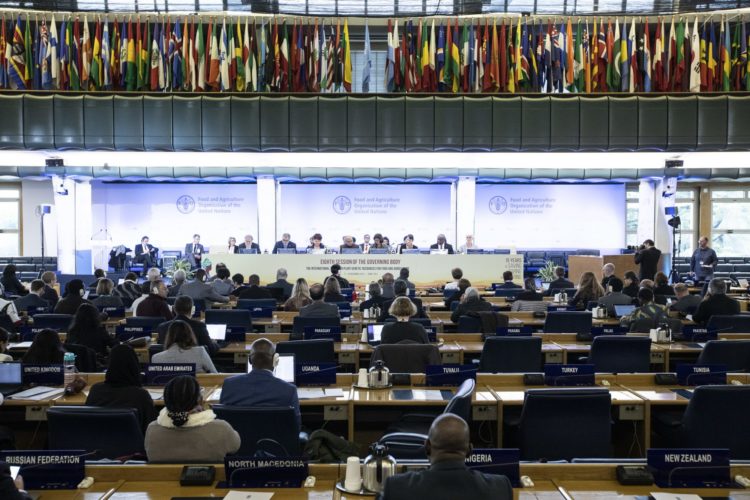Press release: Brussels – November 18, 2019
As of today, at the conclusion of the eighth meeting of its Governing Body – held from November 11 to 16 in Rome – in which a delegation of La Via Campesina participated, along with other peasant organizations, members of the IPC (International Committee on Food Sovereignty) – the International Seed Treaty (1) is totally paralyzed by the greed of the biotech industry and the richest countries.
After six years of laborious negotiations, the Governing Body needed to redesign its functioning on a new basis that would allow the effective implementation of the three missions for which it is responsible in order to ensure People’s security and food sovereignty:
- facilitate international seed exchanges,
- ensure an equitable sharing of the benefits arising from their use,
- respect farmers’ rights so that they can continue to renew and pass on to future generations the full diversity of the millions of seeds they have selected and saved from generation to generation.
Since the implementation of the Treaty 15 years ago, the industry has had easier access to all farmers’ seeds stored in the international gene banks of the Treaty’s multilateral trading system. But, on the one hand, it has never shared the profits it’s made. And, on the other, most countries do not respect farmers’ rights. The Governing Body – the general assembly of the Treaty’s member countries – was supposed to make these payments mandatory and take legal measures to protect and guarantee farmers’ rights.
The conflict has crystallized around a new invisible but formidable object: “digital sequence information”. Modern genetic biotechnologies now allow the biotech industry to obtain patents on information linking a genetic sequence described by a few letters on a computer screen to the particular character of a plant, such as tolerance to a herbicide or resistance to a pathogen. The description of this “genetic information” in patents does not distinguish it from equivalent information known as “native” because it is contained in plants as a result of various natural crosses or mutations. But the scope of patents is extended to any plant that contains similar genetic information to the one patented. Patents on digital sequential plant information thus allow the biotech sector to capture all the seeds in the Treaty’s multilateral system. It will lose its Purpose if it does not give itself the means to prevent this new genetic biopiracy.
Recognizing that the digital sequence information contained in the seeds shared by the Treaty is an integral part of these seeds would cancel these biopiracy patents and force the biotech industry to share the benefits it obtains from their use. Despite a strong mobilization of developing countries, the obstruction of the governments of the richest countries (2) unfortunately prevented the Treaty from taking such a decision.
Will the Treaty be able to pull itself together and resume its missions of fair sharing of seeds and protecting the rights of the farmers who sustain them?
As long as the Treaty does not prohibit those who have access to the seeds of its multilateral system from claiming patents or other rights limiting the right of the farmers who provided them to continue to use, exchange and sell them, La Via Campesina will recommend that farmers worldwide no longer give their own seeds and the digital sequential information they contain to the multilateral treaty system. La Via encourages developing country governments to require the same condition before submitting their own national seed collections to the Treaty.
ECVC calls on farmers to continue to work with national seed banks and governments that protect their rights in their national laws. ECVC will also continue to work with the Treaty so that it can break the deadlock in which it had been put by the colonial arrogance of a few rich countries.
Contacts:
Guy Kastler – ECVC Seeds Group: + 33 603 94 5721 – FR
Alessandra Turco – ECVC Coordination Committee: +39 347 642 7170 – IT, ES, FR
Antonio Onorati – ECVC Seeds Group: +39 3408 2194 56 – IT, FR, EN
1) International Treaty on Plant Genetic Resources for Food
and Agriculture. (ITPGRFA) These plant genetic resources are plant seeds, their
parts and genetic components used by the seed industry to breed new commercial
varieties
2) From North America and Europe, as well as Japan and Australia
This post is also available in Español.

